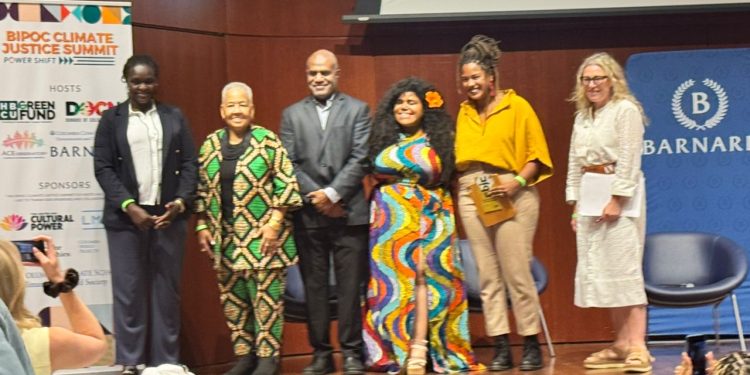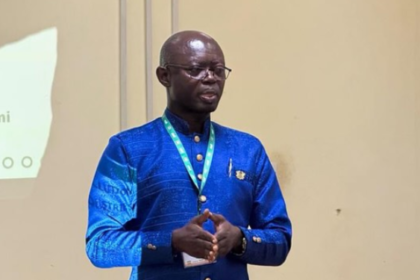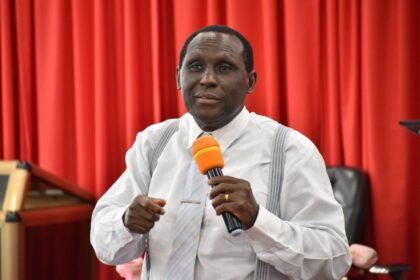The Chief Executive of Ghana’s Environmental Protection Agency (EPA), Professor Nana Ama Brown Klutse, has made a passionate appeal for urgent international cooperation to address Africa’s growing climate challenges.
Speaking at the Harvard Climate Symposium in Cambridge, Massachusetts, Prof. Klutse warned that the continent is increasingly at risk from rising sea levels, environmental degradation, and worsening climate impacts that threaten both livelihoods and ecosystems.
“Given the complex and interconnected environmental issues facing Africa — especially in West Africa — we need immediate, coordinated action,” she told participants.
“Climate change in Lagos affects people in Accra and Abidjan. That’s why we need regional collaboration and integrated policy responses to drive the critical climate adaptations our region so urgently requires.”
Justice, Equity, and Local Realities
Prof. Klutse also emphasized that climate solutions must not focus solely on technical fixes, but should incorporate justice and equity, particularly for communities on the frontlines of climate change.
“Our response must be guided not only by science but by the lived experiences of those most affected,” she noted.
She made her remarks during a panel discussion titled “Rising Seas, Resilient Communities – Climate Adaptation Strategies in West Africa”, where she joined leading scientists, policymakers, and activists to explore sustainable, science-driven approaches to building resilience across the region.
Harvard Climate Action Week: Global Solutions, Local Impact
The symposium formed part of Harvard Climate Action Week, organized by the Salata Institute for Climate and Sustainability, under the broader theme “Pathways for Progress on Energy and Climate.”
The event convened policymakers, academics, business leaders, and nonprofit advocates to discuss practical solutions for reducing emissions, promoting decarbonization, and strengthening resilience to climate shocks.
Among the high-profile speakers was Massachusetts Governor Maura T. Healey, who delivered the keynote address. She urged significant investment in building a skilled climate workforce, highlighting the state’s Climate Careers Fund, which aims to train tens of thousands in renewable energy and clean technology.
Healey was joined by Tracy Palandjian, CEO of Social Finance, in a conversation on financing scalable climate solutions.
Global Voices for a Shared Future
Other notable speakers included:
- Steven Chu, former U.S. Energy Secretary
- Laurence Tubiana, CEO, European Climate Foundation
- Scott Strazik, CEO, GE Vernova
- Diana Hernández, Columbia University
- Arunabha Ghosh, CEO, India’s Council on Energy, Environment and Water
Panel discussions explored critical topics such as:
- Powering the Transition
- Climate Investors: Headwinds and Tailwinds
- Reducing Methane Emissions: Key Opportunities
A Shared Urgency
Throughout the symposium, a common message resonated: climate action must be inclusive, scalable, and resilient to political and economic pressures. Experts called for bold investments in solutions that prioritize vulnerable communities while reducing short-lived pollutants like methane, which offers near-term gains in the climate fight.
As the event concluded, Harvard reaffirmed its position as a global hub for climate leadership, bridging science, policy, and community action to tackle one of the world’s most pressing challenges.














